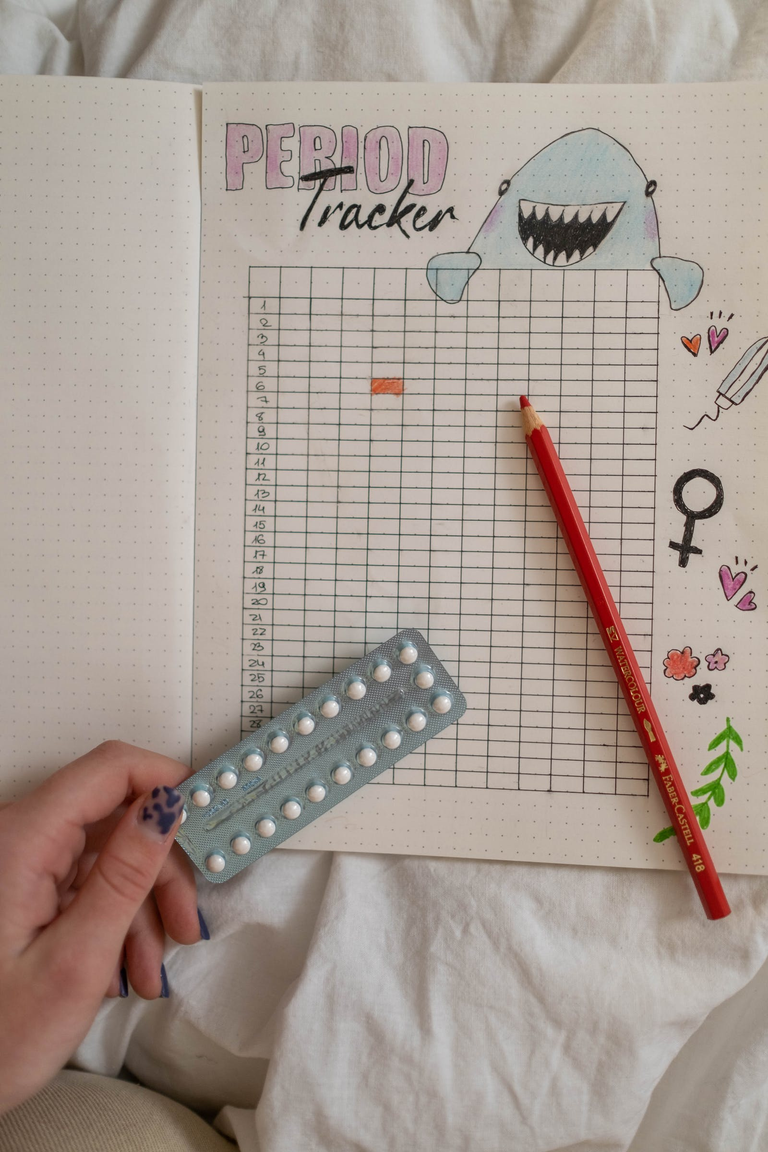Are Birth Control Pills Safe for Consumption?
Abortion is illegal in a lot of countries especially in Nigeria, in order to reduce the level of unwanted pregnancy, and for some other personal reason, like excessive childbirth, has made a lot of sexually active young adults look for ways to reduce the possibility of getting pregnant while having fun.

pexels
The use of contraceptives for the female gender is one of the common methods of preventing pregnancy these days but the question is, are these medications completely safe, do they have future side effects? and a lot more questions are what we will be getting answers to in this post, so hang on friends. However, before we begin to explore the world of contraceptives, let us quickly explore the various methods of pregnancy prevention available.
The basic goal of every pregnancy prevention technique is to prevent the sperm from getting to the egg.
Male and female condoms: This is a very common type of method to prevent pregnancy. However, there are safety guidelines associated with the use of condoms in order to guarantee an efficient result. Choosing the correct size of condom, ensure that the base of the condom is in place before pulling out, and make sure you never reuse a condom, use it just once.
If you are using a lubricant, you want to be sure that the condom used is compatible with the lubricant type. It is also important for us to know that a female condom and a male condom should not be used together, one should be used in the absence of the other.Hormonal prevention method: This method of birth control prevention stops ovulation, and the possibility of having eggs released from the ovaries is very low, this birth control method does not protect against STIs and they can only be purchased with a doctor's prescription,

pexels
Cervical cap: The cervical cap is placed inside the vagina, it covers the cervix and prevents sperm from getting through to the egg, it is a soft silicone cup. It does not protect against STIs as well.
Diaphragm: This is another pregnancy preventive technique, it is placed inside the vagina a few hours before sex and left in place for 6 hours after sex, it should be removed after 24 hours, we should bear in mind, however, that diaphragms do not protect against STIs.
Sponge: Sponge is a birth control method that can be purchased without a prescription, the sponge is made of polyurethane foam that contains spermicide, this sponge is placed deep into the vagina, and it is used to block entry to the uterus. Although the sponge is effective, the use accompanied by a condom further reduces the possibility of pregnancy and even STIs.
Spermicide: Functions by inactivating sperm, spermicide can either be used alone or used with the sponge. If used alone, it should be inserted close to the cervix for at least 10 minutes before sex, the effectiveness of spermicide runs for as long as 60 minutes.
Patches: Contraceptive patches can be placed on the back, stomach, buttocks, and even the upper arm, patches are worn for 3 weeks and then removed for 1 week which is the week for menstruation, although this comes with a little risk of skin irritation for the user.
Vaginal ring The vaginal ring comes in a plastic form, it is placed in the vagina for 3 weeks, it functions by releasing hormones into the body in order to prevent pregnancy. The ring has a validity of 3 weeks, it is removed for 7 days in order to give room for menstruation, after which a new ring is inserted.
Injection: This injection is often given by a doctor and its validity lasts for 12 weeks. When the injection is stopped, it may take up to 10 months or even more, for fertility to normalize.
IUDs: IUDs are often inserted into the uterus by a doctor, they do not stop ovulation, instead they act as contraception by thickening the cervical mucus to prevent sperm from entering the uterus as well as hormonal changes.
There are two types of IUDs, hormonal and copper-based IUDs.
A hormonal IUD once fitted into the uterus lasts up to 5 years before there is a need for replacement, the copper-based IUD on the other hand, is a hormone-free IUD that is covered in copper wire, it destroys the sperm trying to make its way into the uterus, one of the copper-based IUD can prevent pregnancy for up to 10 years.

pexels
Implants: These are another effective form of hormonal birth control, medical experts would insert a ''matchstick-sized kind of rod'' into the patient's arm in order to prevent pregnancy.
Natural family planning: This method of pregnancy prevention does not require the intake of any pill, it is a natural way of tracking the menstrual cycle and then avoiding sex during the fertile phase of the woman's cycle. A woman's fertile period usually lasts for 6-9 days every month, once these days can be avoided, the possibility of getting pregnant is usually very low.
Sterilization: This procedure involves a man and a woman going through medical procedures to reduce their level of fertility. Men can get a vasectomy, which involves the snipping of tubes responsible for carrying sperm into the man, the vasectomy could be reversed later on, but in most cases, the reversal of fertility is usually impossible.
For women, they could get a sterilization procedure, which is also known as tubal ligation, this process involves the clamping or the sealing of the woman's fallopian tubes, the process cannot be reversed but in a few cases, there have been situations where tubes reconnect and it results in pregnancy. 1
Now, to the main method of pregnancy prevention we want to discuss in this post, which is;
Oral (emergency) contraceptive: People use emergency contraceptives when they have unsafe sex or in case of a broken condom. These pills are hormonal pills that people take often within 3 days of having unprotected sex, there are basically two types of oral contraceptives. We have the combination pills which contain estrogen and progestin, the second type is the mini pills which contain progestin alone, (progestin is a synthetic form of the natural hormone known as progesterone).
The possible side effect of oral contraceptives.
Hormonal levels of the person taking these pills may be affected, which of course will result in different reactions, these should naturally last for only 2-3 months but if symptoms persist, it is wise to visit a medical expert.
As a result of hormonal change, there might be an increased sex drive or libido and there could also be a reduction in sex drive.
Spotting is one of the most common side effects associated with the intake of oral contraceptives, this happens because the body is trying very hard to adjust to the changes in the level of hormones and it is also trying to adjust the uterus into having a thinner lining.
Developing a tender breast, especially during the first periods of taking the medication is extremely common, the simple process of putting on a supportive bra would help.
Nausea is another common symptom found among those who practice oral intake of contraceptives, which usually subsides over time. Taking the pill with food or during bedtime would help out a lot.
Headaches and Migraine should be expected, the frequency and level of headache could depend on the dosage and the type of pill taken.
Birth control pills can contribute as well to weight gain
Regular mood changes are also not left out.
Very light or completely missed periods can also occur, however, a pregnancy test is the best way to determine the presence or the absence of pregnancy. Birth control pills could be effective, but the possibility of getting pregnant is still very possible especially if the medication is not taken appropriately.2
Now that we have listed the possible side effects of oral contraceptives, it is very important for us to also check out the risk factor associated with the intake of these medications.
Research carried out by Office on women's health, has suggested that there is a great possibility that the intake of birth control pills would increase an individual's risk of blood clots and high blood pressure or even hypertension which would eventually lead to stroke or heart attack.
Birth control pills may not be safe for certain categories of women, so if you fall within any of these categories, you want to stay clear of birth control pills as much as possible.
- A case of untreated hypertension.
- History of heart disease.
- History of breast cancer.
- Migraine.
Once you begin to notice any of these symptoms, you should visit a medical expert immediately, as it indicates serious health concerns.
- Shortness of breath, chest pain, or even both in most cases.
*Eye problems such as blurred vision.
*Experienced swelling or aching in the things and the legs.
*Severe abdominal pain.
While long-term birth control pills are usually safe for a lot of females to use indefinitely, the usage of these pills can cause certain health complications.
The case of breast cancer is a little higher in women who use hormonal birth control pills than in those who have never used them.
Ovarian cancer has a lower likelihood of occurrence in women who take the pill.
Women who take the pill for longer than 5 years have a greater chance of developing cervical cancer even if this is not the main cause of cervical cancer. 3
Birth control pills have also been associated with an increased risk of benign liver tumors and high blood pressure.
Blurred vision or a complete loss of vision is also not left out. 4
Conclusion.
In order to settle for the best birth control strategy that is best for you, speak with a medical expert while you consider the possible side effects of each of them. You need to think about the cost of each of them also and stick with the one that best fits your financial budget, but that is of course, after strategically weighing the pros and cons of the process.
For further studies.
https://www.medicalnewstoday.com/articles/321558
https://www.medicalnewstoday.com/articles/290196#risks
https://www.medicalnewstoday.com/articles/290196#cost
https://www.medicalnewstoday.com/articles/314368#other-choices

Hi, I am Tobi a writer, speaker, relationship blogger, and lover of good music. I love making friends and learning from people. Want to hear me speak on relationships and general life issues, you can find my podcast channel Here and I also have a youtube channel where you can listen and watch any episode for free, do not forget to subscribe and share with friends. I sincerely appreciate every love I get from members of the community and do well to keep them coming.
https://twitter.com/yerani_ferrer/status/1548384242224115713
https://twitter.com/ascha3a/status/1548544103457202178
The rewards earned on this comment will go directly to the people( @lindoro, @aschatria ) sharing the post on Twitter as long as they are registered with @poshtoken. Sign up at https://hiveposh.com.
I would avoid anything chemical that changes hormones. We have enough chem in food and cosmetics to kill a horse, no need for more.
!LUV
!HBIT
@aschatria(1/1) gave you LUV. H-E tools | my wallet | discord | community | <><
H-E tools | my wallet | discord | community | <><
HiveBuzz.me NFT for Peace
Success! You mined .9 HBIT & the user you replied to received .1 HBIT on your behalf. mine | wallet | market | tools | discord | subscribe | <>< daily
The smallest HBIT unit: which name is better, bitoshi or quark?
I understand, safety is extremely important, thanks for your time.
Yeah, this is a delicate matter. Fun fact: The other day I came across this quote: "It is now quite lawful for a Catholic woman to avoid pregnancy by a resort to mathematics, though she is still forbidden to resort to physics or chemistry". It is not about abortion, but highlights the strong influence of religious beliefs and institutions on local culture and its politics. Also, it's to do with STEM :D
Really funny, religious and cultural believes are very strong reasons why people do a lot of things, thanks for reading
A small sized snail walking around my house today, one of the pictures I promised.
If I must be real with you, this is a very delicate topic. The use of contraceptives didn't just start because women wanted to avoid being pregnant, it happened because women wanted to be treated equally at work, and when a woman had a child then, it looked like she had lost her values. So people have been using since then, and while i must say it has its side effects, a lot of people will beg to differ.
This is interesting, I never even tried to study the origin of contraceptives intake, I should make further research and write on it. Thanks a lot for reading dear @eni-ola
Thanks for your contribution to the STEMsocial community. Feel free to join us on discord to get to know the rest of us!
Please consider delegating to the @stemsocial account (85% of the curation rewards are returned).
Thanks for including @stemsocial as a beneficiary, which gives you stronger support.
Oh i just know that there is also a female condom. I don't know about it. Anyway, I am not using any contraceptive pill because we are just using a natural family planning or we commonly called it here a calendar method.
That's really also good, at least you don't have to worry about all the side effects that accompanies the other methods.
That natural method though 🌚
You don't like it dear?